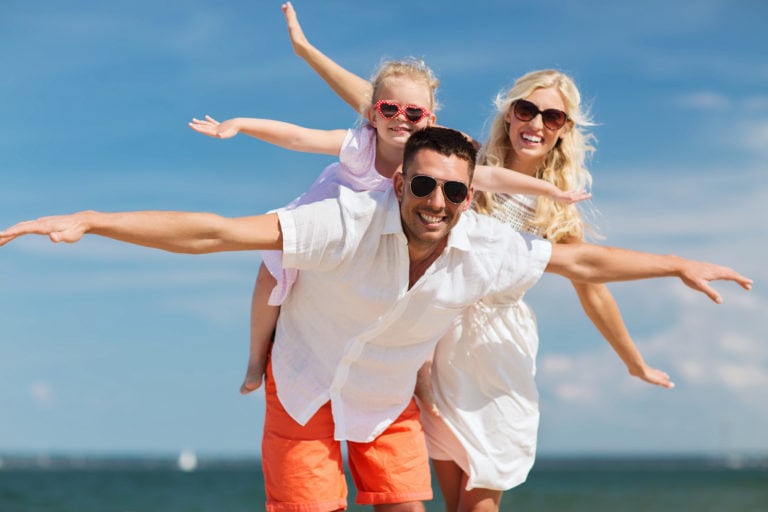Visible light is broken up into different colors in the spectrum, and the rays at cooler end, known as UV rays, have the most energy. While this means that exposing your skin and eyes to short amounts of UV rays can energize you and lift your mood, excess exposure can cause temporary and even permanent damage. Everyone’s familiar with how smaller amounts of pleasant sunlight can accumulate to create a sunburn in the short term, and certain forms of skin cancer after a long period of exposure. The same thing can happen to your eyes if they’re not protected.
THE EFFECTS OF LONG-TERM UV EXPOSURE
When you squint in bright sunlight, that’s your body trying to protect itself from dangerous UV rays. The damage from excess UV exposure can come in both short- and long-term versions. If you spend many hours at a time in very bright light, surrounded by glare-producing environment such as water or snow, you can develop a case of photokeratitis.
This is basically sunburn in your eyes. You’ll suffer from dry, itchy eyes, redness, a feeling like there’s sand in your eyes, and excess tearing. The good news is that, like a skin sunburn, these symptoms are almost always temporary and will go away in a day or two if you stay out of the sun to prevent further damage.
The real problem comes with long-term exposure. The damage from UV rays is cumulative, meaning that it builds up over time. Years of excess exposure has been shown to be one of the most significant contributors to the development of cataracts and macular degeneration. It’s not clear exactly how much exposure it takes to reach that tipping point when your eyes are in danger, so the prudent thing to do is to protect your eyes every time you go out into the sunshine.
UV PROTECTION FOR YOUR EYES
The best way you can prevent this damage from sunlight is by wearing a pair of quality sunglasses every time you go out in the sun. But not just any pair of sunglasses will do. For the best results, they must:
- Block out at least 99 percent of all UV-A and UV-B rays
- Screen out at least 75 percent of all visible light
- Have gray lenses so they don’t distort color
- Have perfect lenses with the exact same color on each one
If you spend a lot of time outdoors, wraparound frames covering the sides of the head provide the best protection. Don’t forget the younger people in your family. Children spend significantly more time outside than most adults, and have a greater need for eye protection from UV rays. At Florida Eye Specialists, we can turn any pair of eyeglasses into protective sunglasses that will help keep your eyes safe from UV exposure danger. Call our office at (904)346-3506 today to make an appointment for you and your family members.

